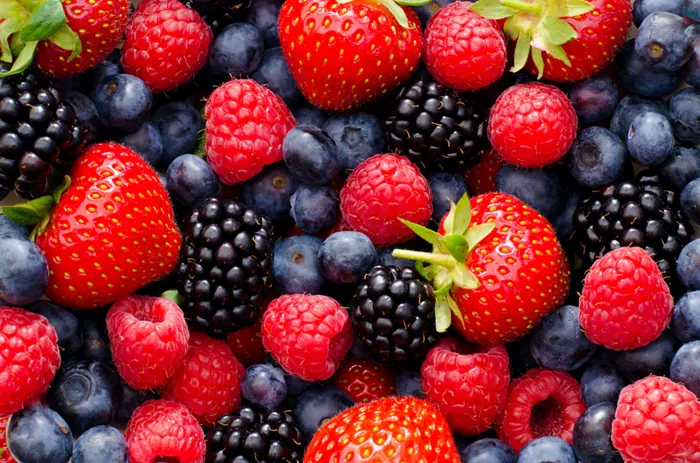A new study suggests that specific foods—like garlic, berries, and green tea—could help slow the aging of your cells, offering practical ways to support healthier aging through your diet.
Aging is inevitable, but science is finding new ways to measure and potentially influence how we age biologically. A recent study published in the journal Aging links higher consumption of certain nutrient-rich foods, known as methyl adaptogens, to a reduction in epigenetic age—a measure of how quickly cells are aging biologically, regardless of your actual age.
What Is Epigenetic Age and Why It Matters
Unlike your chronological age, epigenetic age (EA) reflects the biological wear and tear on your body. Scientists believe EA is more closely tied to your risk for chronic diseases such as diabetes, heart disease, and certain cancers.
Researchers from the Methylation Diet and Lifestyle Study (MDLS), a small pilot clinical trial, tested how a targeted diet and lifestyle program could affect EA in men aged 50 to 72. While the program showed promise in slowing biological aging, scientists noticed a wide range of results among participants—and diet may be the reason why.
The Study: Targeted Foods and Lifestyle Choices
The MDLS study included 43 healthy men, 38 of whom completed the nine-week program. Participants in the intervention group followed a strict lifestyle plan that included:
- A methylation-supportive diet
- Daily physical activity
- Meditation practices
- Seven hours of sleep per night
The diet focused on foods that support DNA methylation, a natural process that influences gene expression. These foods, known as methyl adaptogens, include:
- Garlic
- Berries
- Turmeric
- Rosemary
- Oolong and green tea
Additional guidelines encouraged daily servings of dark leafy greens, beets, cruciferous vegetables, seeds, lean meats, and low-glycemic fruits.
Meanwhile, the control group continued their usual eating and lifestyle habits.
Key Results: What the Data Shows
At the start of the study, the men in the intervention group were already epigenetically younger—on average, 5.3 years younger than their actual age—while the control group was slightly older biologically. Over nine weeks, researchers found:
Participants who ate more methyl adaptogens showed greater reductions in EA.
This relationship remained strong even after accounting for changes in weight and initial aging rates.
Beets, eggs, cruciferous and colorful vegetables also appeared to support EA reductions.
Gaining weight was associated with an increase in EA.
Notably, the most frequently consumed beneficial foods in the intervention group were fruits and colorful vegetables, eaten nearly twice as often as in the control group.
What This Means for You
While the study was small and limited to healthy middle-aged men, the results offer hopeful insights. Incorporating foods that support DNA methylation—like garlic, berries, and green tea—could help support cellular health and reduce the effects of aging.
Here’s how to apply these findings to your everyday life:
1. Add Methyl Adaptogens to Your Meals
Try including one or more of the following each day:
- Raw or cooked garlic in stir-fries or soups
- Fresh or frozen berries in smoothies or oatmeal
- A cup of oolong or green tea in the afternoon
- Rosemary as a seasoning for roasted vegetables or meat
- A pinch of turmeric in rice or stews
2. Eat a Rainbow of Vegetables
Brightly colored vegetables—like carrots, beets, bell peppers, and leafy greens—are packed with antioxidants and polyphenols. These compounds may help reduce inflammation and protect your DNA.
3. Prioritize Sleep and Physical Activity
The study’s lifestyle program didn’t stop at diet. Regular physical activity, mindfulness, and sufficient sleep also supported healthy cellular function. Aiming for at least 30 minutes of moderate activity and 7 hours of sleep nightly can make a difference.
4. Watch Your Weight
Weight gain was associated with accelerated cellular aging. Balancing your calories with nutrient-rich foods and consistent activity is key to maintaining both physical and biological health.
Limitations and What Comes Next
Despite the promising findings, this research comes with caveats:
The sample size was small and limited to men.
Participants were mostly white and highly educated.
Diet was self-reported, which can introduce inaccuracies.
The program excluded whole grains, legumes, and dairy to reduce digestive complaints, which might not be ideal long-term.
Researchers caution that the findings are “hypothesis-generating,” meaning they lay the groundwork for larger, more diverse studies to confirm these results and explore the benefits for broader populations, including women and younger adults.
The Bottom Line
If you’re looking for simple, practical ways to support healthy aging, incorporating certain foods like garlic, berries, and green tea into your diet could be a smart move. While it’s not a magic solution, combining these choices with healthy habits like exercise, stress reduction, and sleep may help keep your cells younger—and you feeling better—for longer.
Related topics:
- Top 7 Cranberry Supplements For Urinary Health: A Guide For Women
- Could Mulberry Extract Help Combat Obesity-Related Reproductive Issues?
- The Benefits Of Cranberry Juice For Males: A Comprehensive Guide


